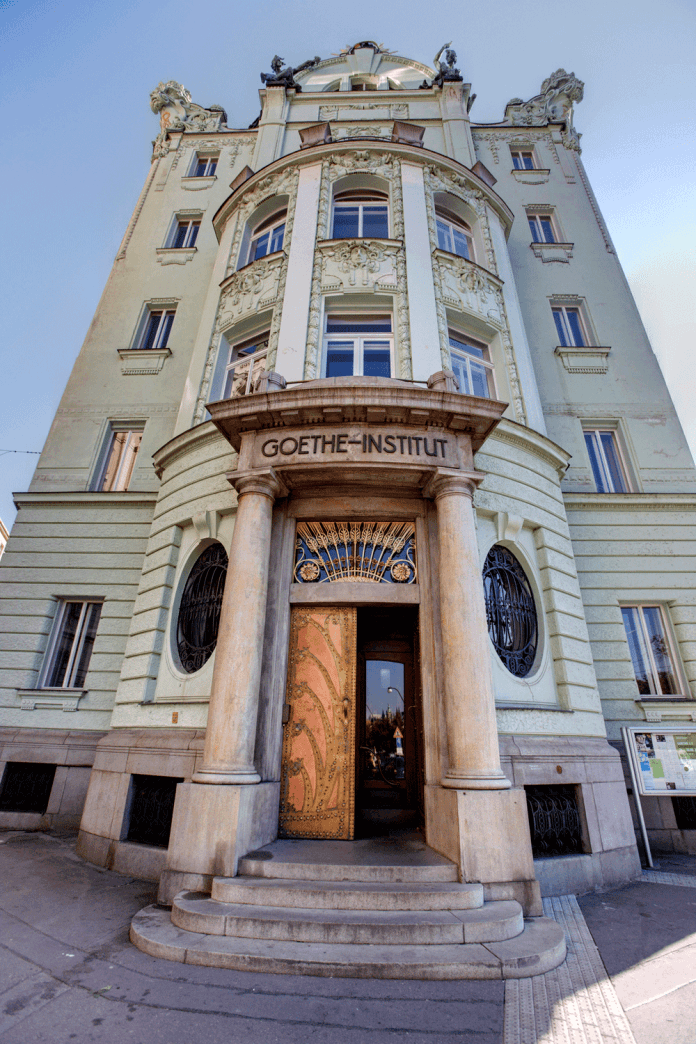The Goethe Institute is the Federal Republic of Germany’s official cultural institution operating on a global scale. With 159 sites in 98 countries, The Goethe Institute is essential in encouraging the mastery of German abroad, promoting international cultural cooperation and conveying a faithful image of present-day Germany. Thanks to cooperative projects with partner institutions in countless additional locations, the Goethe Institute currently boasts about 1,000 points of contact all over the world.
“Initially, Friedrich Salzbrenner, the founder of Salzbrenner media and longstanding customer adviser to the Goethe Institutes, received orders from the institution’s HQ in Munich where all calls for tender and purchases are coordinated. Nowadays, orders are placed directly by the head of each institute, which ensures a more personal and time-efficient contact right from a project’s onset,” comments Rainer Hettwer, the project manager in charge of Goethe Institutes at Salzbrenner media. “We have known and advised most institutes for decades. Together, we prepare a workflow, install the requested system and provide after-sales service.”
In recent years additional Goethe Institutes have benefited from all-in installations supplied by Salzbrenner media. For example, the institute in Lagos (Nigeria) was equipped with a PA system, wireless microphones and a control rack; the institute in Almaty, Kazakhstan, received a complete setup consisting of a PA system, wireless microphones, management and projection equipment, including a screen, junction boxes and a discussion system. As well as this other institutes based in Rome and Nicosia (Cyprus) received comparable installations, which in one case included a video and associated monitoring system for interpreters. Over the years, the PA system installed in Prague has been gradually upgraded to a full-blown interpretation system.
Salzbrenner media technology is also used outside of Europe by several Goethe Institutes on the African continent: In Addis Ababa (Ethiopia) an interpretation system with three interpretation transmitters, 60 receivers and headphones, an interpretation control panel and a ventilated cabin were installed. For outdoor events, the audio, lighting and stage departments were equipped with a new mixing console, a tailor-made rack with casters, a feedback suppressor, audio accessories, amplifiers and speakers. The order also included a lighting console, spots and mobile stage panels.
Small-scale conference and interpretation systems, discussion and PA systems as well as partial setups were also implemented by Salzbrenner media in collaboration with Goethe Institutes in Ankara and Istanbul (Turkey), Bangalore (India), Sarajevo (Bosnia-Herzegovina), Beijing (China), Kiev (Ukraine), Madrid (Spain), Milan (Italy) and Hanoi (Vietnam)
According to Rainer Hettwer, the special aspect of the collaboration with Goethe Institutes is the highest quality standards required by the Institutes: all Goethe Institutes are visited by German delegations on a regular basis, and so the equipment installed needs to meet the most exacting standards while remaining user-friendly. Rainer states “The emphasis clearly lies on flexible and technically powerful systems. In addition, replacing or installing new equipment often poses challenges, because Goethe Institutes are usually based in architectural gems or even listed buildings.”
The decade-long collaboration between the systems integrator and Goethe Institutes grants a number of additional advantages. Most suppliers are contacted over and over again, and quantities can be anticipated, allowing Salzbrenner media to offer highly competitive rates.
Moreover, the systems integrator is so familiar with the various Institutes’ requirements that each system can be tailored precisely to the application at hand. “Rather than supplying isolated components, we provide all-encompassing system solutions,” stresses Rainer Hettwer.





